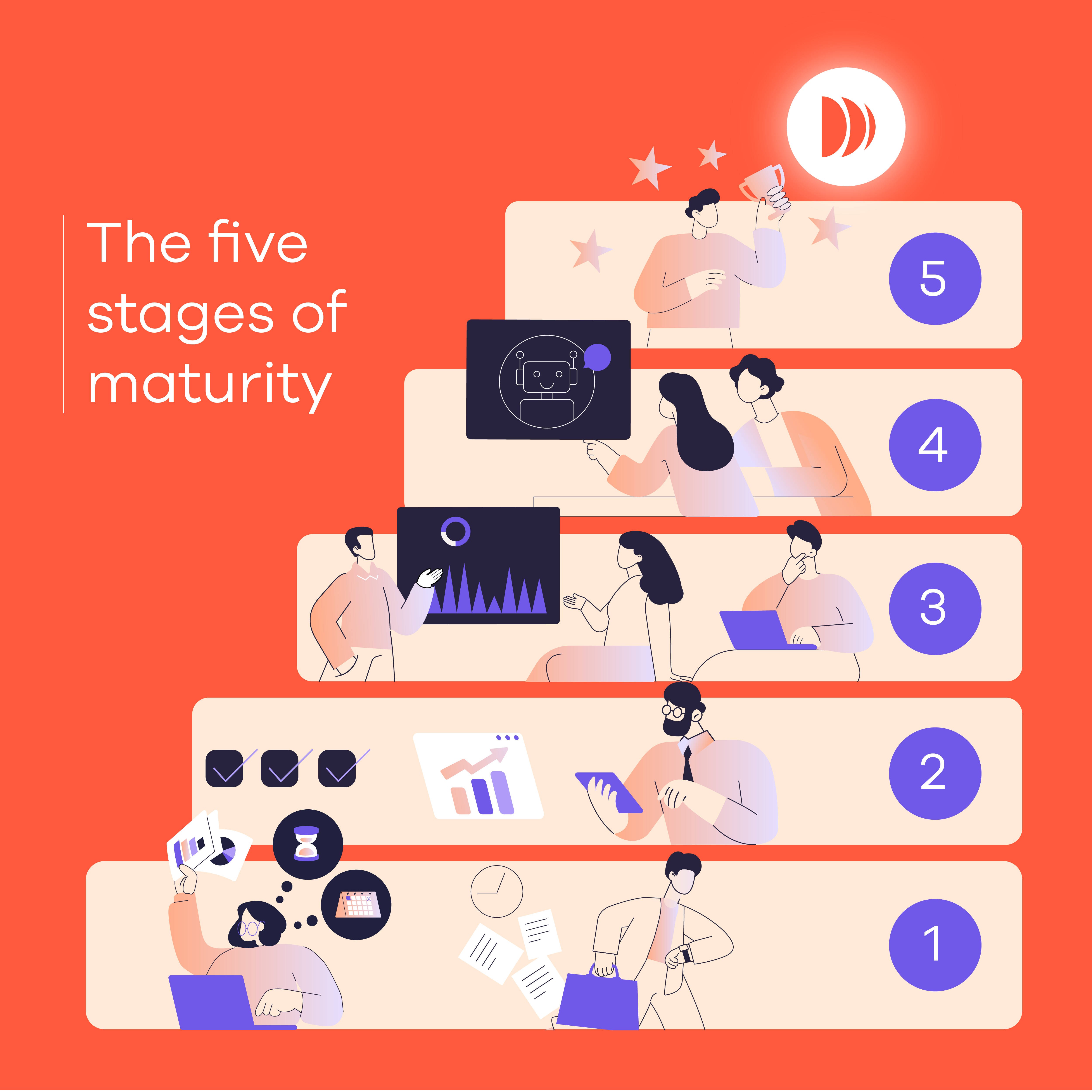Careers
Want to join us?
To see our current openings, check out our Careers.
Platform
Strategic resource management
Optimize margins. Grow revenue.
Plan reliably. Act confidently.
Inspire teams. Delight clients.
Enterprise scalability
Use Cases
How Dayshape helps firms
10 ways for resource managers to elevate their impact

Elevate your role, expand your influence, and drive impact across your firm.
Listen nowCustomer Success
Value at every stage
Company
More about Dayshape
Resources
Learn more
Resources
Featured resources
Resource Management Maturity

The complete blueprint to transform your resource management.
Learn moreWe’re a software company using AI technology to help people at large professional services firms plan their projects in the best way possible.
And we have a lot of fun doing it!
What started as a conversation over a cup of coffee in 2013 became a transformative force in professional services.
Co-founders Andrew Bone and Dr. Alastair Andrew combined expertise in AI and finance to create a world-class product that would revolutionize resource management. Andrew, a Chartered Accountant with PwC and RBS, saw first-hand the challenges of inefficient resource management, and Alastair, a PhD graduate in combinatorial optimization, brought deep expertise in AI-driven planning and scheduling. Together, they set out to develop a cutting-edge solution that would transform workforce planning in professional services.
Dayshape’s breakthrough came in 2016 with PwC Poland, proving the power of AI-driven project planning. Since then, the company has experienced remarkable growth, ranking as Scotland’s fastest-growing tech firm three years in a row and expanding into 55+ countries. A major investment from Cow Corner in 2023 fueled further global expansion, particularly in the US, while a leadership transition in 2024 set the stage for the next chapter. In 2024, Matt Cockett joined as the new CEO to lead the business into its next stage, while Andrew became Chairman and directed his day-to-day focus on his passion for tech innovation to lead our product team as Dayshape’s VP Product.
Dayshape's purpose is to improve people’s working lives, and the mission is clear: to harness the power of AI and data to elevate resource management in professional services firms to a strategic function. We help drive revenue, deliver insights that improve decision-making, and build strong organizations and fulfilling careers for the long term. With a vision to define the future of AI-powered resource management, helping organizations achieve extraordinary results, Dayshape is reshaping how firms approach workforce planning. Now, with customers across audit, consulting, tax, IT services, and media agencies, Dayshape is redefining resource management as a strategic function, delivering smarter ways to optimize teams and achieve success.

We won’t compromise on these values for anyone. Ever.
Ever-improving
Today our best, tomorrow better
Unity
Working together, aligning our goals
Well-being
People first, always
Well-formed opinions
Everyone gets a say. It’s mandatory.

These are our minimum acceptable standards. If you don’t have them, it’s just not going to work.
Respect
Show respect—to colleagues, clients, differences, ideas, time, and yourself.
Responsible
Own your actions and handle all data and property with care.
Adaptable
Be ready to pitch in, go beyond your role, and do whatever it takes.
Sense of humour
Being able to laugh at yourself is essential at Dayshape.

We’re working hard to make these values part of our everyday lives.
Extreme accountability
Things don’t happen to you, they happen because of you.
Over-communication
Say it once, repeat it often.
Transparency
Everything shared and out in the open. The way we like it.
Big picture
Everything is much clearer from up here.

Some things we do aren’t by design!
Scrappy
We thrive with an underdog mentality and a pragmatic focus.
Relaxed
We love our informal working environment!
Humility
We leave egos at the door—our work speaks for itself.
People of Dayshape
Our team isn’t just about tech—it’s about people who care.
Get to know our Spotlighted Team below
Team Spotlight - Product

Dawn Proctor
Product Operations Manager
Dawn has over 15 years’ experience as a management consultant for a ‘Big Four’ professional services firm. Outside of work you’ll find her watching her kids play football, building Lego, or frantically trying to remember which Pokemon is which.

Ellie Young
Product Manager
Ellie has managed products in growth industries such as digital mapping, and the metaverse. She is passionate about the Scottish tech scene and working in a dynamic, young company. When she’s not at work she’s probably out adventuring in the hills!

Emily Fenech
Product Manager
Emily has experience in the Toronto and Scottish tech scenes, having worked in financial technology and cloud computing. Outside of work, you can find her exploring the hills of Scotland with her dog or trying to set a personal best at a weekend Parkrun.

Gabriela Codreanu
Product Manager
Gabriela joins Dayshape from the world of public transit, where she has managed data products and software products for the biggest journey planner apps and UK’s Department of Transportation. Outside of work, you’ll find Gabriela at the nearest pool working on her dolphin kicks (lots more to do!) or reading.

Steven Cote
Senior Product Manager
Steven transitioned into the world of product management and has applied his user centred approach across the tourism & hospitality, prop tech, and insurance sectors. He has lived in Scotland for over 10 years, joined by his wife and two children. Steven's more obscure hobbies are freestyle wrestling, metal music, and MotoGP – if you want to get him talking even more, throw some Belgian beer into the mix.

Find out more about life at Dayshape - straight from the people working here!

In the world of tech and SaaS, it's very common to have a North Star Metric—a single measure that best captures the...
Read More
4 min read
As a Talent Management Specialist in the People team at Dayshape, I’ve been involved in hiring and welcoming many new...
Read More
4 min read
Originally posted on Thursday October 10, 2024. At Dayshape, Mental Health Awareness Day is more than just a date on...
Read MoreCheck out our open vacancies or get in touch
to learn more.